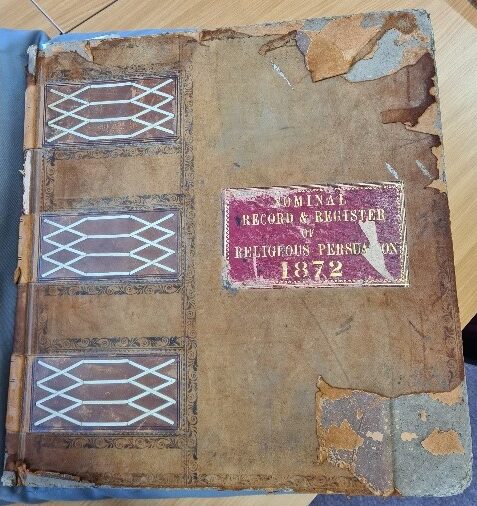Rural Dorset in the late 19th century was a distinctive yet hardwearing place to find yourself. Among the vast spans of idyllic fields and picturesque scenery was an overwhelming agricultural depression and spiralling economic hardship. The dominating occupations at the time in Dorset were waged labourers and small tenants who held very few rights and earned very little. When this illustration is paired with the economic and agricultural depression underway in Dorset during the 19th century, it is easy to picture the increasing crime rate and the need for stricter punishment.
The Dorset History Centre holds a vast range of documents relating to the Dorchester Prison, including prison photographs, registers, and descriptions. Although there is a gap in the collection between the prison photographs and the registers, and descriptions for this period, it is evident from the collections that Dorset was in the midst of an agricultural depression, and this can be witnessed in the instances of food theft. When looking at the prison registers which illustrate the offences committed, it is difficult to locate crimes such as murder or assault. Instead, the pages are full of theft regarding food, mainly vegetables, and these acts are committed across all age groups.

Instances of food theft
A select individual who is located within the prison registers and descriptions at the Dorset History Centre is Sidney Benjafield who was 13 years old when he was committed for stealing apples at the value of 2 shillings on 5 November 1872 and sentenced to 10 days in prison and two years at a reformatory school. When using the prisoner description books alongside this register account it becomes clearer that Benjafield lived in the Parish of East Stour and was a Carter’s Boy by trade.

A further individual from the documents held at Dorset History Centre is Thomas Collins who was committed at the age of 30 on 4 January 1877 for stealing peas to the value of 6 shillings. Again, from the description book it is evident that Collins was from the Parish of Sydling and was a labourer by trade.

Importance
At a time when the ‘Bloody Code’ was a term used to describe the implementation of the Death Penalty to crimes, the undertaking and desperation required by individuals found in the prison collections at the Dorset History Centre is hard to fathom. With further inspection into the information contained within the registers, it can be identified that these were both Benjafield and Collins’ first offences and this thereby alludes to criminally poor behaviour. These may not be individuals who, if they were not living in an agricultural and economic depression, would turn to crime as a form of day-to-day behaviour but are instead actions taken by people trying to find food in order to survive.
Collections such as the prison collections held at the Dorset History Centre provide a window into the ordinary. Allowing further insight into the hardship faced by the population of Dorset and could be used further to explore the role children played in the family network and its link to criminal behaviour.
Life in Dorset during the 19th century was not as calm and relaxed as it is commonly made out to be!
—
This was a guest blog, written by Rosie Charles, who has spent time working at Dorset History Centre as part of her work experience. If you would like to contribute a guest blog, please get in touch with us – archives@dorsetcouncil.gov.uk.


Hi I am researching my family history which includes Charles Davis and Anna Maria Brine my great x 4 grand parents Anna Maria was the sister of James Brine .we are already back to to the 1500s but would like at some point to
visit the history centre .we tried in 2022 but unfortunately it was closed as we are now in our mid 70s we would like information on local genealogist or access on line I hope you can help. Mrs P Openshaw ( Davis )
Thanks for your message – you are welcome to visit us during our opening hours (Wednesday-Friday, 9am-5pm; or the first Saturday of each month, 9am-4.30pm) and have a chat with staff about your research. Alternatively, if you would like to give us a call – 01305 250550; or drop us an email – archives@dorsetcouncil.gov.uk – we will see what we can do to help!
I would appreciate some helping finding a genealogist. who could help my sister and I with our search.
Hi Pam, there are numerous options online, but we would suggest contacting either the Dorset Family History Society or the Somerset and Dorset Family History Society in the first instance, to see what they might be able to help you with.